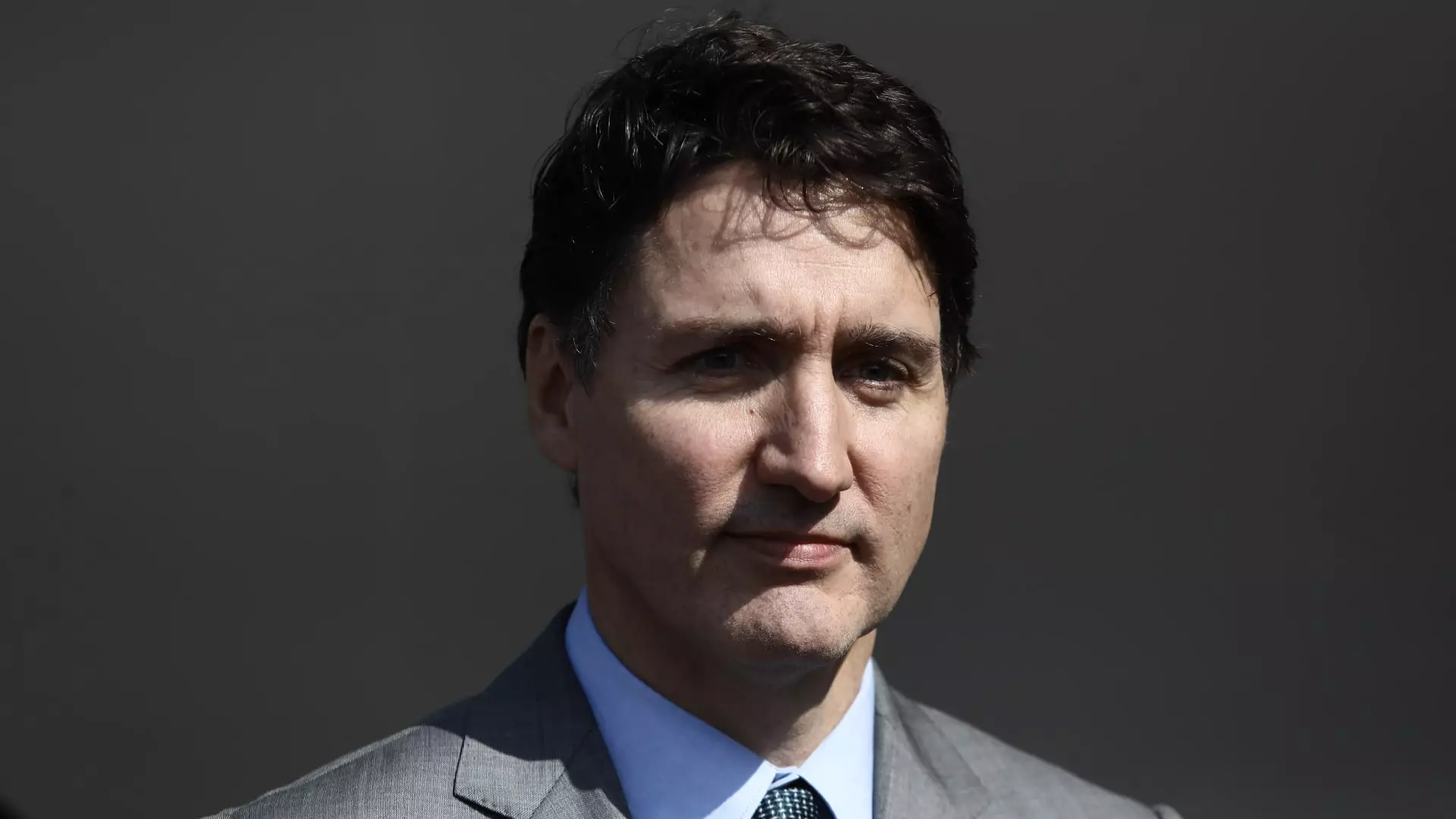As the Canadian political stage continues to evolve, the situation surrounding Prime Minister Justin Trudeau has garnered increasing attention. Reports suggest that Trudeau may be contemplating stepping down as leader of the Liberal Party, a decision that could reverberate through the party and Canadian politics at large. This article delves deeper into the implications of this potential departure, the context leading to it, and what it could mean for Canada’s future governance.
Justin Trudeau ascended to the helm of the Liberal Party in 2013 when the party found itself in a precarious position, burdened by a series of electoral defeats that had relegated it to third place in the House of Commons. With a platform built on the principles of “sunny ways” and progressive values—promoting women’s rights and confronting climate change—Trudeau initially sparked enthusiasm among voters. His electoral victory in 2015 marked a significant turnaround, projecting a vision of optimism and reform.
However, the past few years have not been kind to the Prime Minister. The challenges of governance, compounded by unforeseen crises such as the COVID-19 pandemic, have tested his leadership. Despite efforts to shield Canadians from economic fallout through hefty spending, Trudeau’s policies have drawn criticism, and record deficits have sparked public discontent. Rising living costs and strains on housing facilities have further endangered the Liberal’s standing among Canadians.
Rumblings about Trudeau’s imminent resignation have begun to permeate the political discourse, primarily inspired by the Liberal Party’s alarming standing in recent polls. With an impending election that must occur by late October, the timing of a potential leadership transition creates an air of uncertainty. A transition at this critical juncture could leave the party adrift, prompting immediate questions about continuity and direction.
The urgency for a leadership change is echoed by the growing anxiety among Liberal parliamentarians, who are increasingly vocal about the need for a fresh face to address their dwindling support. The party’s performance in two special elections, where it lost historically safe seats, has intensified calls for Trudeau to consider stepping aside. These internal pressures could ultimately result in a scramble for leadership that may impact the party’s electoral chances significantly.
Should Trudeau resign, the question of succession looms large. Some sources indicate that Finance Minister Dominic LeBlanc might entertain the notion of stepping in as an interim leader. However, this scenario presents complications if LeBlanc intends to pursue a run for the leadership himself. Such political maneuvering underscores the precariousness of the Liberal Party’s situation during this pivotal moment.
The leadership vacuum could spur calls for a general election, as the urgency for a stable governance framework becomes paramount—especially with a new U.S. administration on the horizon. The inability of the Liberal Party to present a unified front could have dire implications as Canada navigates its relationship with its southern neighbor, particularly with the anticipated policies of President-elect Donald Trump.
Trudeau’s tenure has been characterized by polarizing scrutiny, with proponents of his agenda frequently clashing with a disillusioned public eager for tangible outcomes. His recent clash with Finance Minister Chrystia Freeland, leading to her resignation, marked a pivotal moment in his administration. The fallout from such incidents raises significant concerns about party cohesion and effectiveness as the Liberal Party endeavors to recalibrate itself.
As Canada prepares for the possibility of a leadership change, the implications reach beyond party dynamics. This shift could reshape the overall political spectrum, providing an opportunity for opposition parties to consolidate and refine their strategies. The concern that the Conservative Party could dominate an electoral landscape without effective Liberal resistance only adds to the urgency of the moment.
Concluding Thoughts
In summation, Trudeau’s potential resignation could signal a critical turning point for the Liberal Party and Canada as a whole. As internal pressures mount and public dissatisfaction lingers, the next steps taken in this political saga will reveal much about the future trajectory of governance in the country. Whether Trudeau ultimately steps down or remains at the helm, the implications of these decisions will undoubtedly reverberate across the political landscape for years to come.


Leave a Reply